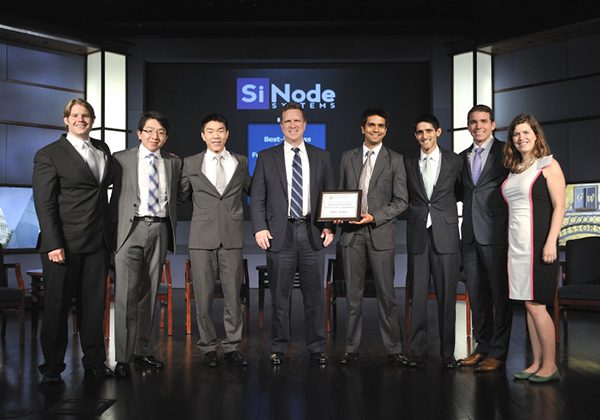Kellogg Start Up Charges Ahead in the Energy Industry

This article was originally sourced from “Clean Energy Student Startup Charges Ahead,” an article in the Campus Life section of Northwestern University’s Alumni Magazine, Northwestern.
Since winning just under $1 million in grant money at business plan competitions last year, SiNode Systems, a Chicago-based energy startup, is looking to change the energy industry with its innovative battery technologies. Since being founded by a team of Kellogg School of Management and McCormick students through NUvention, the start-up has quadrupled its staff, opened a new lab facility, closed a round of private financing, signed a partnership deal with a multibillion-dollar chemical company and reached a deal with the U.S. Department of Energy on June 16 that awarded SiNode a $1 million follow-on grant to develop its technology for electric cars.
SiNode’s revolutionary battery material is made from a silicon-graphene composite that provides increased battery capacity and faster charging rates. Such an innovation is extremely important and valued in today’s extremely connected and wireless society. To put things into perspective, a smartphone powered by this battery technology could last for days and charge in minutes.
Currently, SiNode is focusing on making prototypes for the wearable devices market — smart watches and fitness trackers.
“The wearable market and the consumer electronics market are our pathways to commercialize our technology for electric vehicles,” Samir Mayekar, ’13, co-founder and CEO of SiNode, said. “So the grant money [from the U.S. Department of Energy] is very synergistic with our current development path.”
Mayekar is hoping that his company’s technology will help increase the adoption of electric cars in the future by tackling the two main issues with electric cars— high cost and range anxiety, or the fact that they don’t drive far enough on a single charge.
“If we can alleviate range anxiety, it will incentivize people to adopt zero-emission vehicles. And that will significantly move the needle on our carbon emissions as a country and as a world,” he said.
While completion in this emerging market is fierce, Mayekar doesn’t lose sleep over it.
“There are several companies out there working on building a better battery. But in many ways we don’t view ourselves as competing against them. We view ourselves against the incumbent technology, which is basically graphite-based materials. In our opinion, as many startups as there are in this space, we want other startups to be successful because the market is huge. It’s not going to be just one company that wins the market. The important thing is that all of us are developing new technology to displace incumbent graphite technology.”
